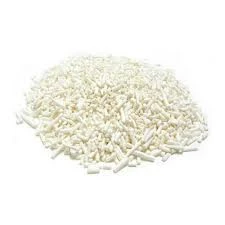
Exploring the Safety and Uses of E627 Food Additive in Our Diets
Understanding E627 The Food Additive
In the dynamic world of food science, additives play a critical role in enhancing the flavor, preservation, and appearance of various consumables. Among these, E627, otherwise known as disodium guanylate, stands out as a prominent flavor enhancer. Commonly used alongside other additives like monosodium glutamate (MSG), E627 serves to boost umami flavors, making food more palatable and enjoyable.
What is E627?
E627 is a salt obtained from guanylic acid, belonging to a class of compounds known as nucleotides. It is primarily used in processed foods, snacks, and instant noodles. Like other flavor enhancers, E627 works by stimulating the taste buds on the tongue, leading to an enriched sensory experience when consuming food. Its effectiveness is especially pronounced when combined with certain other flavor enhancers, such as MSG, as they can work synergistically to elevate the overall taste.
Safety and Regulation
Concerns about food additives often lead consumers to question their safety. E627, however, has been evaluated by various food safety authorities around the world. The European Food Safety Authority (EFSA) and the U.S. Food and Drug Administration (FDA) have classified E627 as generally safe for consumption. Extremely high doses may lead to some adverse effects, but typical consumption levels in food products remain within safe limits for the general population.
One notable feature of E627 is its low toxicity profile, especially compared to other flavor enhancers. However, individuals sensitive to MSG or those with certain health conditions, like asthma, may want to approach foods containing E627 with caution, as they may trigger reactions in some people. It’s always advisable for consumers to read food labels and make informed choices based on their dietary needs.
Applications of E627
e627 food additive

E627 finds its place in a wide range of food products
. It is predominantly used in the manufacturing of- Snacks Potato chips, popcorn, and savory crackers often contain E627 to enhance their flavor profile. - Instant Noodles The addition of E627 helps to create a rich, savory broth that is characteristic of many instant noodle dishes. - Canned Foods Soups and other sauces benefit from E627, which intensifies their taste and ensures that they remain appetizing even after cooking.
Moreover, E627 can be found in some meat products and seasonings, contributing to the savory taste that consumers enjoy.
Public Perception and Trends
In the age of increasing health consciousness, many consumers are becoming more aware of what goes into their food. While E627 is considered safe, the demand for natural and organic ingredients has prompted some manufacturers to seek alternatives. For those who are wary of synthetic additives, options such as vegetable extracts, herbs, and spices provide natural flavor enhancements without the need for chemical additives.
Conclusion
E627, or disodium guanylate, plays an essential role in the modern food industry by enhancing flavor and improving the overall sensory experience of a variety of food products. Its safety has been affirmed by regulatory bodies, but zoals with any additive, consumer awareness and choice remain paramount. As trends shift towards healthier and more natural food options, the future of E627 may evolve alongside consumer preferences. Understanding additives like E627 allows consumers to make informed choices while enjoying the rich flavors that modern cuisine offers.
-
Comprehensive Guide to Acetic Acid as Preservative: Benefits, Uses & Future TrendsNewsNov.24,2025
-
What Is a Food Additive? Global Insights, Applications & Future TrendsNewsNov.24,2025
-
968 Sweetener: The Modern Solution for Health-Conscious SweeteningNewsNov.23,2025
-
Discover the Benefits and Uses of 965 Sweetener (Erythritol) | Tenger ChemicalNewsNov.23,2025
-
961 Sweetener - A Next-Gen Sugar Alternative for Health and IndustryNewsNov.23,2025
-
Understanding 960 Sweetener: The Modern Sugar Alternative for Health and IndustryNewsNov.22,2025
-
Everything You Need to Know About 955 950 Sweeteners – Benefits, Uses, and TrendsNewsNov.22,2025
Hebei Tenger Chemical Technology Co., Ltd. focuses on the chemical industry and is committed to the export service of chemical raw materials.
-

view more DiethanolisopropanolamineIn the ever-growing field of chemical solutions, diethanolisopropanolamine (DEIPA) stands out as a versatile and important compound. Due to its unique chemical structure and properties, DEIPA is of interest to various industries including construction, personal care, and agriculture. -

view more TriisopropanolamineTriisopropanolamine (TIPA) alkanol amine substance, is a kind of alcohol amine compound with amino and alcohol hydroxyl, and because of its molecules contains both amino and hydroxyl. -

view more Tetramethyl Thiuram DisulfideTetramethyl thiuram disulfide, also known as TMTD, is a white to light-yellow powder with a distinct sulfur-like odor. It is soluble in organic solvents such as benzene, acetone, and ethyl acetate, making it highly versatile for use in different formulations. TMTD is known for its excellent vulcanization acceleration properties, which makes it a key ingredient in the production of rubber products. Additionally, it acts as an effective fungicide and bactericide, making it valuable in agricultural applications. Its high purity and stability ensure consistent performance, making it a preferred choice for manufacturers across various industries.





